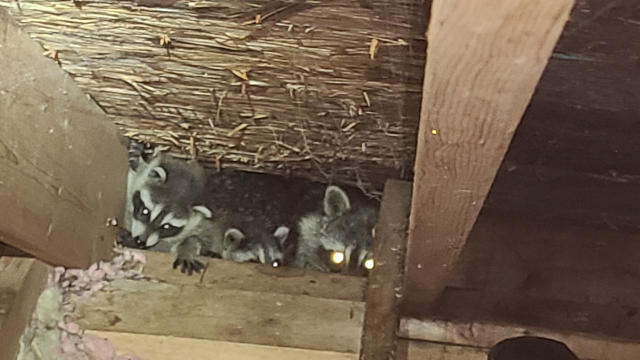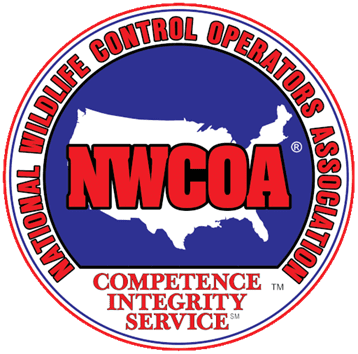Female raccoons giving birth in Ohio occurs between late March and early April. Raccoons begin to mate from January through March, and give birth to a litter of two to five young—called kits—just over two months later. There is a major spike in raccoon calls as raccoons begin giving birth, and the noises of the kits, attracts the attention of homeowners.

Raccoon breeding season in Ohio begins in January and runs through March. After a gestation period of approximately 65 days, raccoon young—called kits—are born in late March and early April. Raccoons typically produce only one litter each year, but more are possible. Litter sizes consist of 3 to 7 young, with 4 being the average size.
Pregnant female raccoons begin looking for safe den sites to raise their young in early March. This is when homeowners begin to hear sounds on the roof and in the soffits and attic of their home. Walking, scratching, and growling sounds are typical when raccoons have made entry into the attic or crawlspace above.
But your home isn’t the only place a female raccoon will select to give birth. Raccoons will also give birth in chimneys, garages, sheds, and under decks, for example. Anywhere the female feels her kits will be protected from both the elements and predators.
The Unseen Risk of Raccoons in Your Home or Business
Having raccoons in and around your home or business may come with severe risk. Raccoons carry many diseases, but they are the primary host of Baylisascaris procyonis (Raccoon roundworm), a zoonotic disease that can be harmful to people. Roundworm eggs are passed in the fecal waste of infected raccoons. These eggs are microscopic in size and exist in the fecal matter by the millions. People become infected by accidental ingestion of the eggs.
Anyone exposed to environments where raccoons live is at risk from raccoon roundworm. This is because raccoons defecate in communal sites, called latrines. As females give birth to and raise their young in and around your home or business, the amount of fecal matter increases daily. Over time the movement of the animals around the environment can spread the fecal matter to surfaces where human hands—often children—may come in contact. This is where the transmission of roundworm eggs can occur from hand to mouth.
Raccoon roundworm eggs are difficult to remove from a contaminated area. Disinfectants are ineffective, and only extreme heat can kill the eggs. The proper and safe handling and removal of raccoon waste is critical when dealing with the cleanup and repair of raccoon damage.
Raccoon Prevention
Preventing raccoons from using your home and property as a den site can be a challenge. Female raccoons will use any hole—any weak point in the structure—as a means to enter and create a den site. Thoroughly inspecting your home and outbuildings early in January can help prevent a raccoon from giving birth in and around your home or business. Repairing and reinforcing all potential entry points now may prevent thousands of dollars in damage caused by raccoons later.
If you’re concerned about raccoons giving birth in your home or business, Summit Wildlife Control can help. We can inspect your home or business and seal and secure all potential areas raccoons may use to enter. We offer professional raccoon trapping and removal services, locating and removing all adult raccoons and their kits from your home or property.
Call us today for raccoon prevention, raccoon trapping and removal, or for cleanup and repair of raccoon damage to your home or property.





